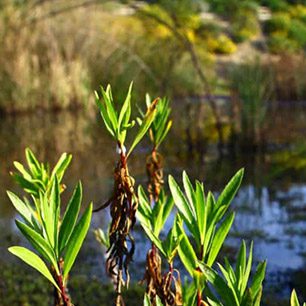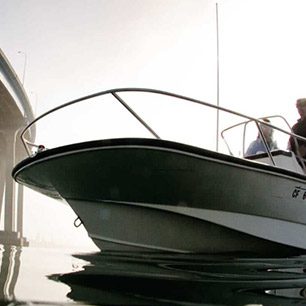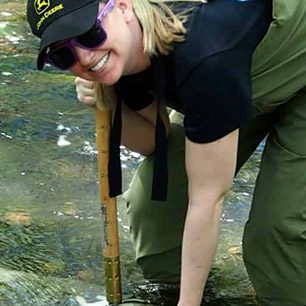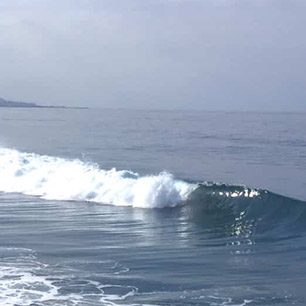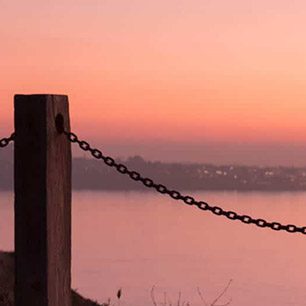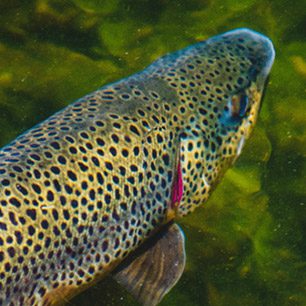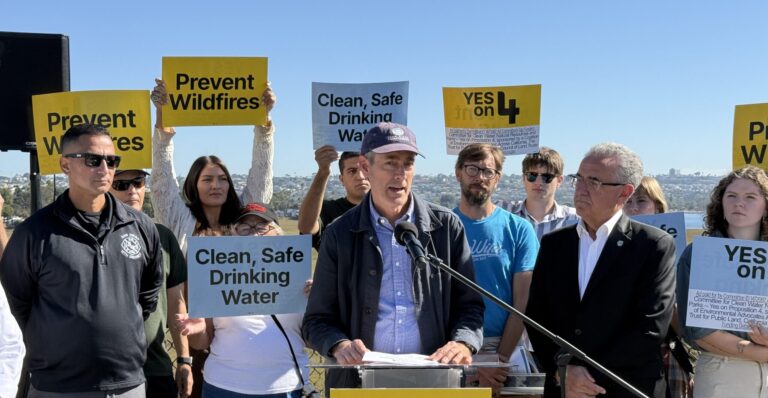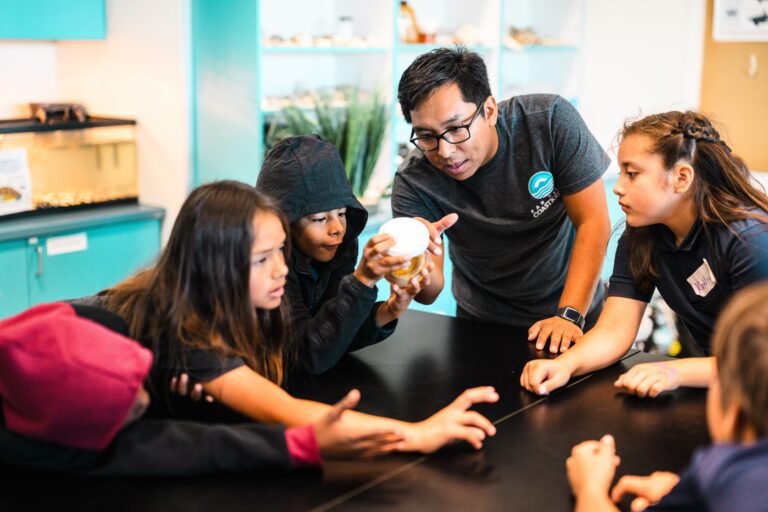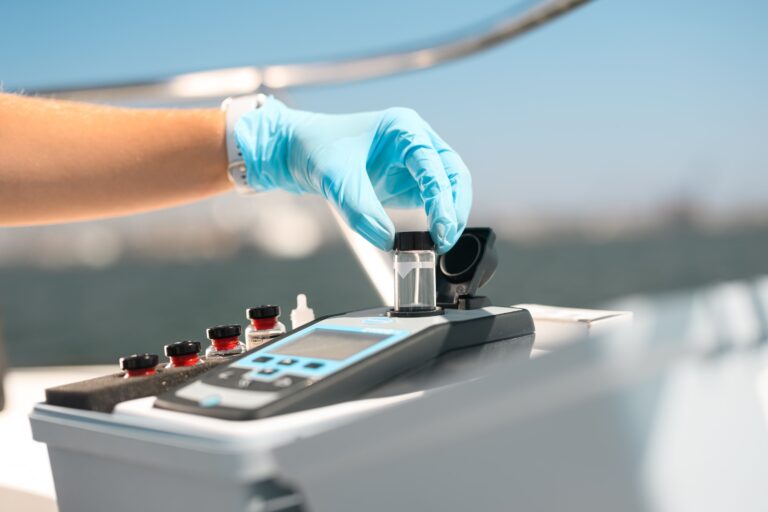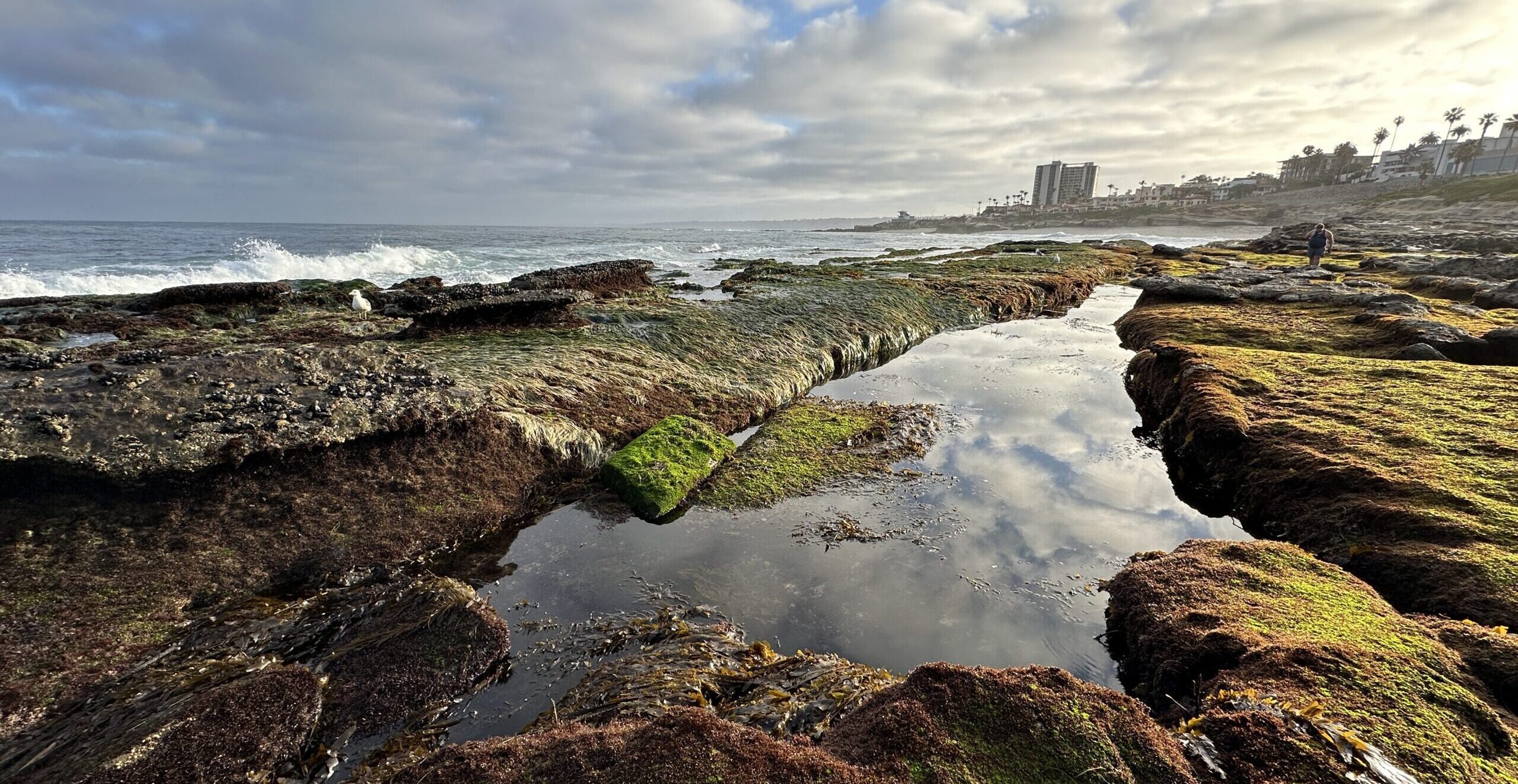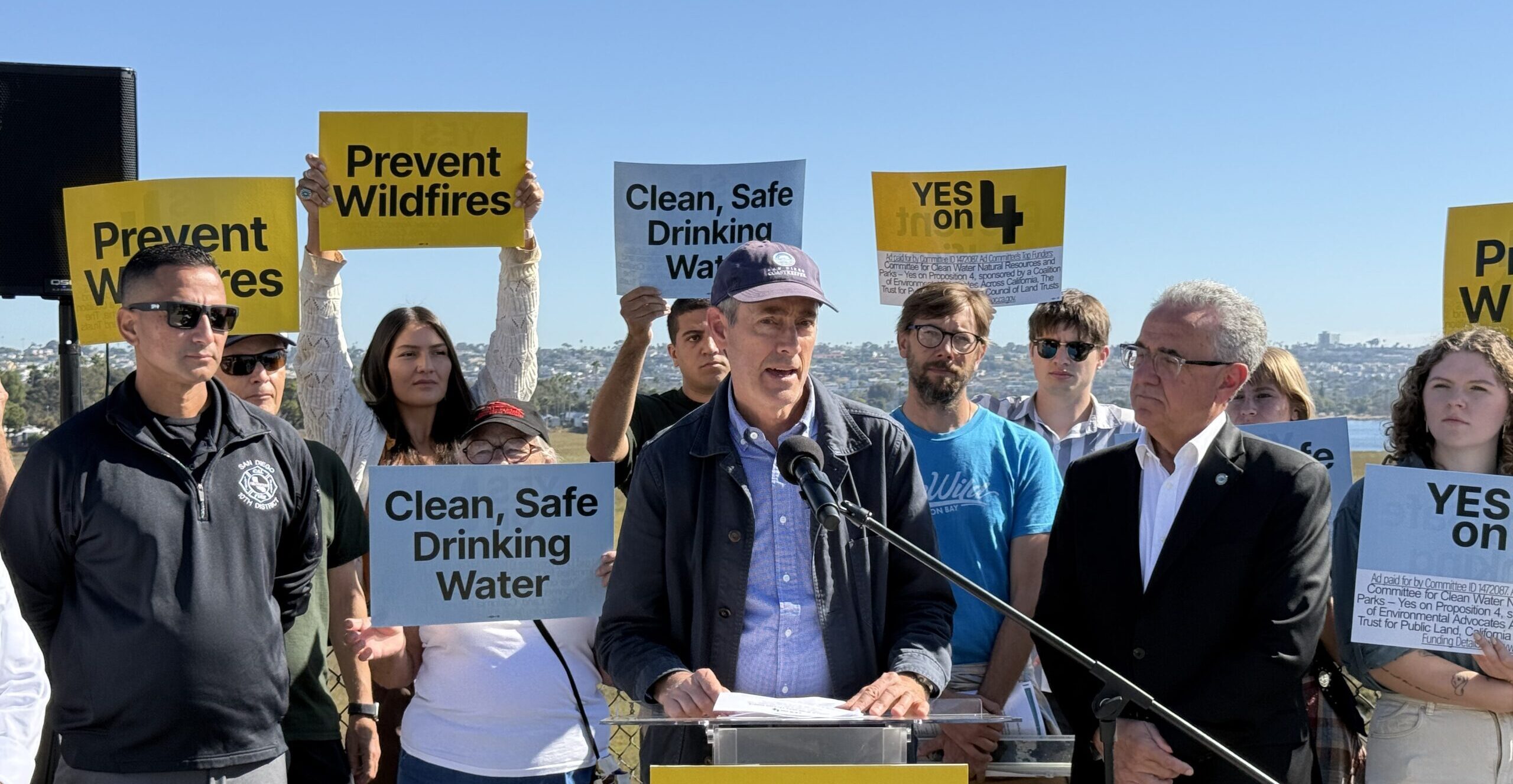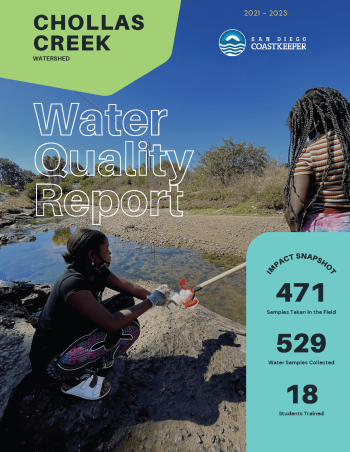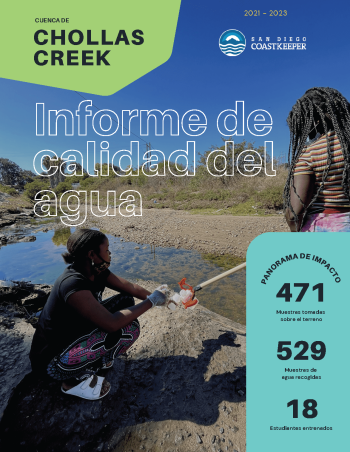Chollas Creek
Water QUality Monitoring
We conduct monthly water quality sampling along Chollas Creek with trained community volunteers to collect and analyze vital data to inform decision-makers and support sustainable, equitable policy.
Navigate to a specific section below.
About the Program | Program Goals | Water Quality Report | Sampling Map and Results | Program Impacts | Program Participants and Partners | Program Funders | Related Blog Posts | Contact
Sampling Map and Results
Water Quality Sampling Map in Chollas Creek Watershed
Students collect water quality samples and other ambient data from six sites in the Chollas Creek Watershed. Explore the sites using the Google Map below.
| List of Sampling Sites |
|---|
| 1. EarthLab |
| 2. Federal Blvd. |
| 3. Market St. |
| 4. National Ave. |
| 5. Alpha St. |
| 6. Main St. |
Results of Data Collection
About the BIPOC Youth Science Program
In partnership with Groundwork San Diego-Chollas Creek and Outdoor Outreach, San Diego Coastkeeper launched a new science program in Fall 2021. Our one-of-a-kind program engages Black, Indigenous, and People of Color (BIPOC) high school students in year-long environmental science education and workforce training.
This program empowers students to care for their communities through field-based learning and outdoor excursions. Our goal is to inspire the next generation of environmental scientists, conservationists, and stewards. Furthermore, the data collected by students inform decision-makers, key stakeholders, and the public about the health of Chollas Creek.
Through this program, we are committed to:
- Increasing environmental science literacy
- Overcoming equity barriers to ecological stewardship and outdoor recreation
- Providing real-world STEM experiences
This program creates a pathway for BIPOC students in Chollas Creek to network, connect, and work with environmental organizations around San Diego like Outdoor Outreach, Groundwork, and San Diego Coastkeeper. Participants will use this experience to secure jobs and strengthen their candidacy for academic and work opportunities.
Program Goals
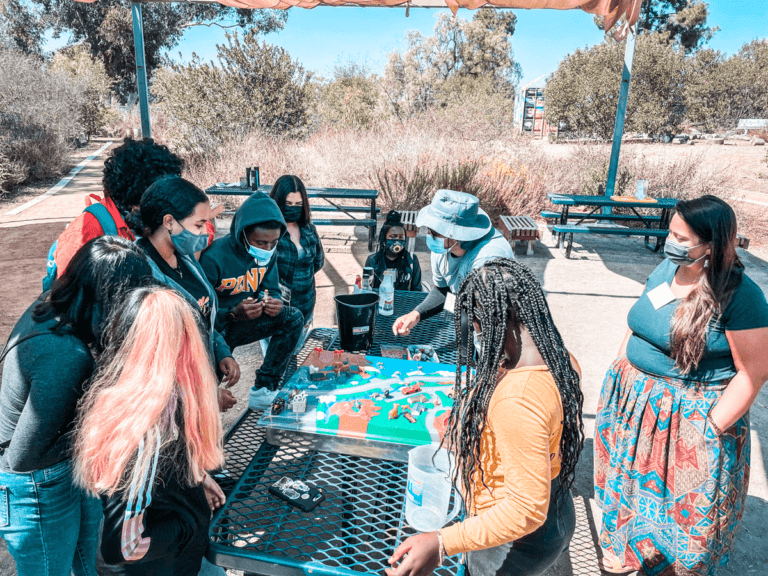



Environmental Stewardship
- Connect BIPOC youth in the Chollas Creek region to the outdoors and their local watershed, the Chollas Creek Watershed.
- Increase environmental science literacy among BIPOC youth in the Chollas Creek region.
- Improve the ecological health of Chollas Creek and the Chollas Creek Watershed.


Workforce Development
- Build skills through water quality sampling training and data collection.
- Network with local environmental organizations and institutions.


Local Advocacy
- Offer the tools, resources, and skills to advocate for positive environmental change in their communities.
- Encourage informed and engaged community members.


Equitable Access
- Provide monthly stipends and free transportation to participants.
- Increase diversity and representation in the conservation and environmental workforce.
Chollas Creek Water Quality Report
We published our first report on water quality in Chollas Creek, using data collected from multiple locations along the creek from 2021-2023. The water quality at all six sampling locations regularly failed state regulatory standards established to protect public health and the environment. Samples indicated high levels of zinc, copper, nitrates/nitrites, phosphorus, bacteria, and other pollutants. This data reflects the need for increased investment in stormwater infrastructure, including green infrastructure projects in the communities surrounding Chollas Creek, that would help capture and treat urban runoff and benefit the health and safety of nearby neighborhoods.
Program Impacts
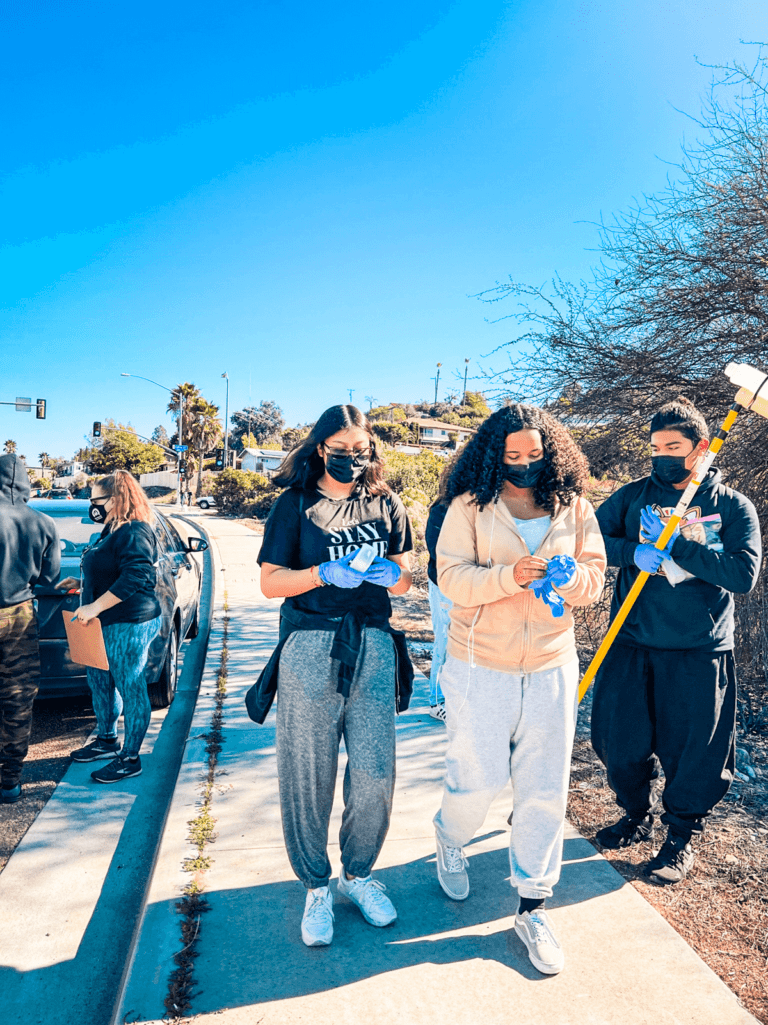

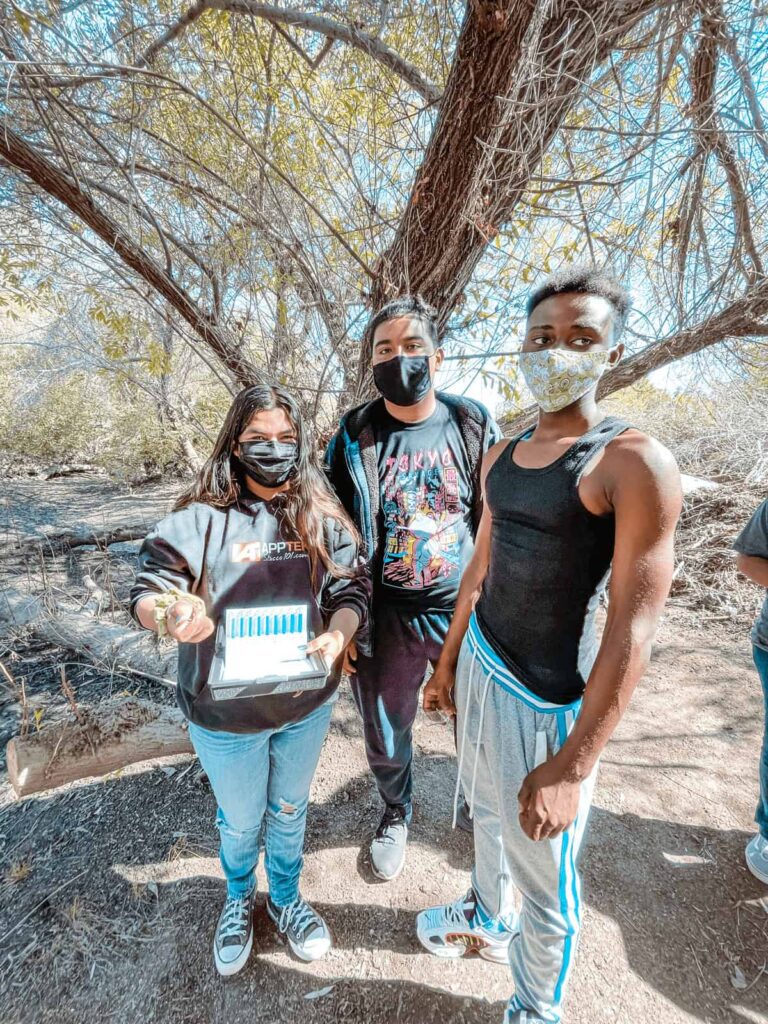

Unequal Access to the Outdoors
Although San Diego County is home to some of the country’s finest beaches and rich in green outdoor spaces, many San Diegans still lack access to parks and nature. Due to various obstacles, including historical and systemic racism and safety concerns, discrimination, accessibility, affordability, and cultural factors, our most racially and ethnically diverse communities often have fewer opportunities to connect with nature. This lack of access also limits the likelihood of an individual understanding their role in environmental stewardship.
According to the Parks for Everyone 2020 report, most of the Chollas Creek Watershed is identified as an area with “less than eight areas of parkland per 1,000 people and below $51,026 median household income,” meaning these communities are park-deficient. This finding – and many other factors – leads to unequal access to and participation in the outdoors.
Pollution and Environmental Justice
The Chollas Creek Watershed contains waterways that criss-cross through populated neighborhoods – mostly communities facing environmental racism and justice challenges – including Chollas Creek, City Heights, Lemon Grove, La Mesa, Encanto, and Barrio Logan. Chollas Creek is an urban 30-mile long creek within the Chollas Creek Watershed. Unfortunately, this creek is one of our region’s most neglected water bodies. It is on the federal 303(d) list, which means the waterway is pollution-impaired or damaged by pollution and fails to meet national water quality standards. The pollutants found in Chollas Creek include toxic metals, pathogens, and harmful levels of nutrients. These pollutants negatively impact the health of the waterway, the surrounding communities, and its habitats and ecosystems.
Lack of Diversity in Science and Conservation
Additionally, the whitewashing of environmental science and conservation in the United States is another symptom of the long-lasting impacts of colonialism and systemic racism. Data collected from the U.S. Forest Service in 2018 indicates between 88 percent and 95 percent of all public land visitors are white, even though they only make up 63 percent of the U.S. population. Additionally, 38 percent of the U.S. population is considered an ethnic minority. However, only 16 percent of ethnic minorities make up the staff of an environmental foundation, nonprofit, or governmental agency board. While only 12 percent of ethnic minorities are hired into leadership positions and rarely ever obtain top positions like the president or board chair (Taylor, 2014).
A visit to the staff pages of various environmental and outdoor organizations in San Diego illustrates a lack of diverse representation and ethnic minority individuals. San Diego is home to people from different cultures, races, nationalities, and backgrounds. The environmental science and conservation workforces in San Diego need more diverse community representation. Providing opportunities for minority students to interact with nature will help develop a future career in these fields.
Program Participants
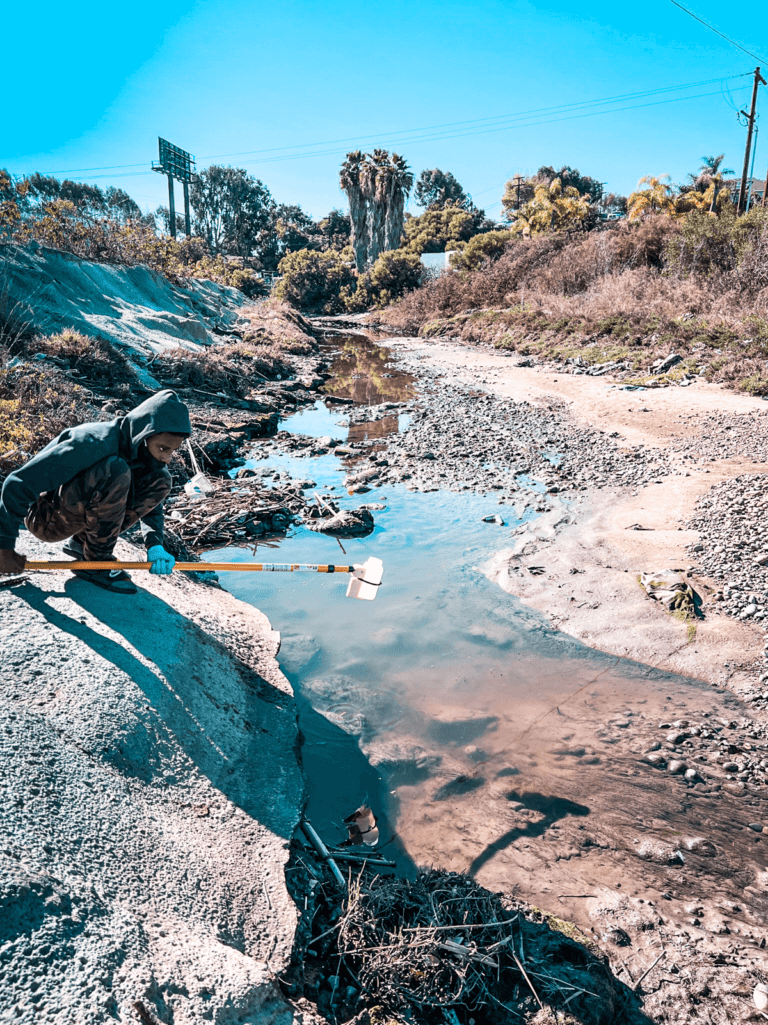

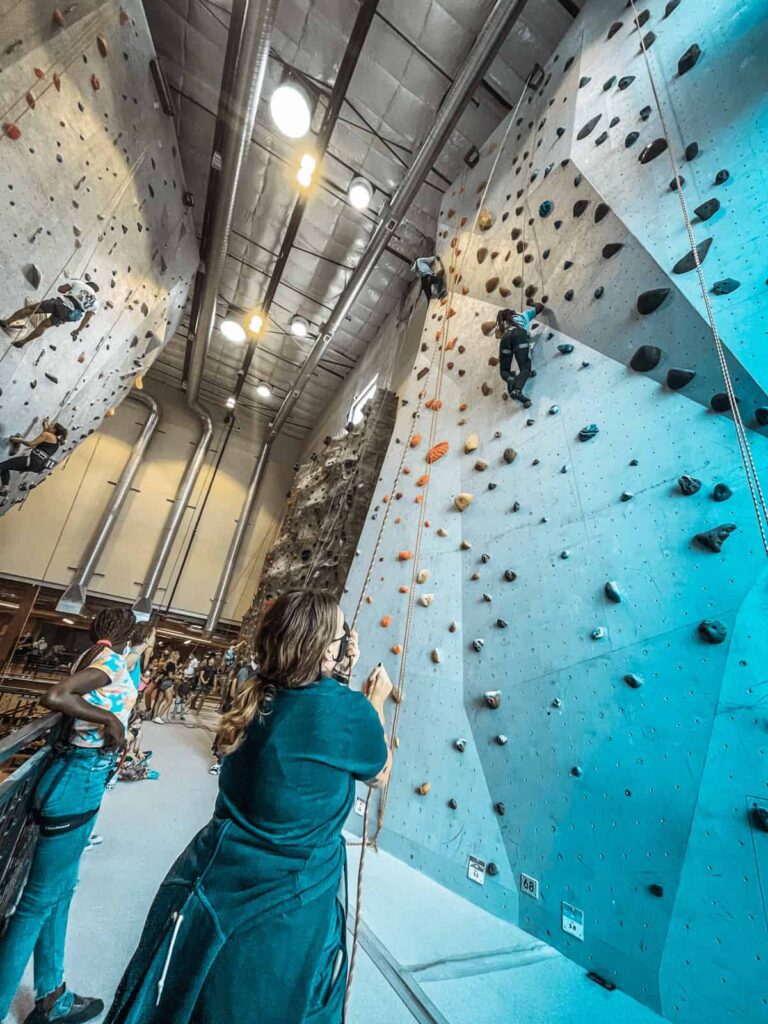

Program participants are 14-18 years old and attend Lincoln High School. Lincoln High School is located in the Lincoln Park neighborhood of Southeast San Diego and is part of the San Diego Unified School District. Lincoln Park is a historically working-class neighborhood and is home to diverse populations. This community has 17 percent of children under ten and seven percent of older people over 65. Thirty-nine percent of the community members in this neighborhood are Hispanic, 34 percent African-American, and 16 percent Asian. More than 25 percent of the residents live below the federal poverty level with a median household income of $46,000, which is $33,000 less than the median household income in San Diego County.
Program Partners
Groundwork San Diego-Chollas Creek is a local environmental nonprofit organization dedicated to restoring the Chollas Creek Watershed through community engagement. This program will supplement the existing Green Team Youth Leadership Program at Groundwork. Student leaders from the Chollas Creek Watershed participate in various restoration and community service projects, including learning about green-collar careers, developing leadership skills, and exploring their natural surroundings through the lens of environmental justice and stewardship. Groundwork recruits students in partnership with Lincoln High School, oversees student communications and logistics, attends the monthly engagements, provides transportation, and participates in the mid-term and end-of-program evaluation meetings.
Outdoor Outreach is a local nonprofit dedicated to connecting students to the transformative power of the outdoors. Together, we coordinate and host the quarterly outdoor recreational events. Outdoor Outreach staff oversees the outdoor recreation events and provides gear and equipment for activities they facilitate, including hiking, kayaking, tide-pooling, and rock climbing.

